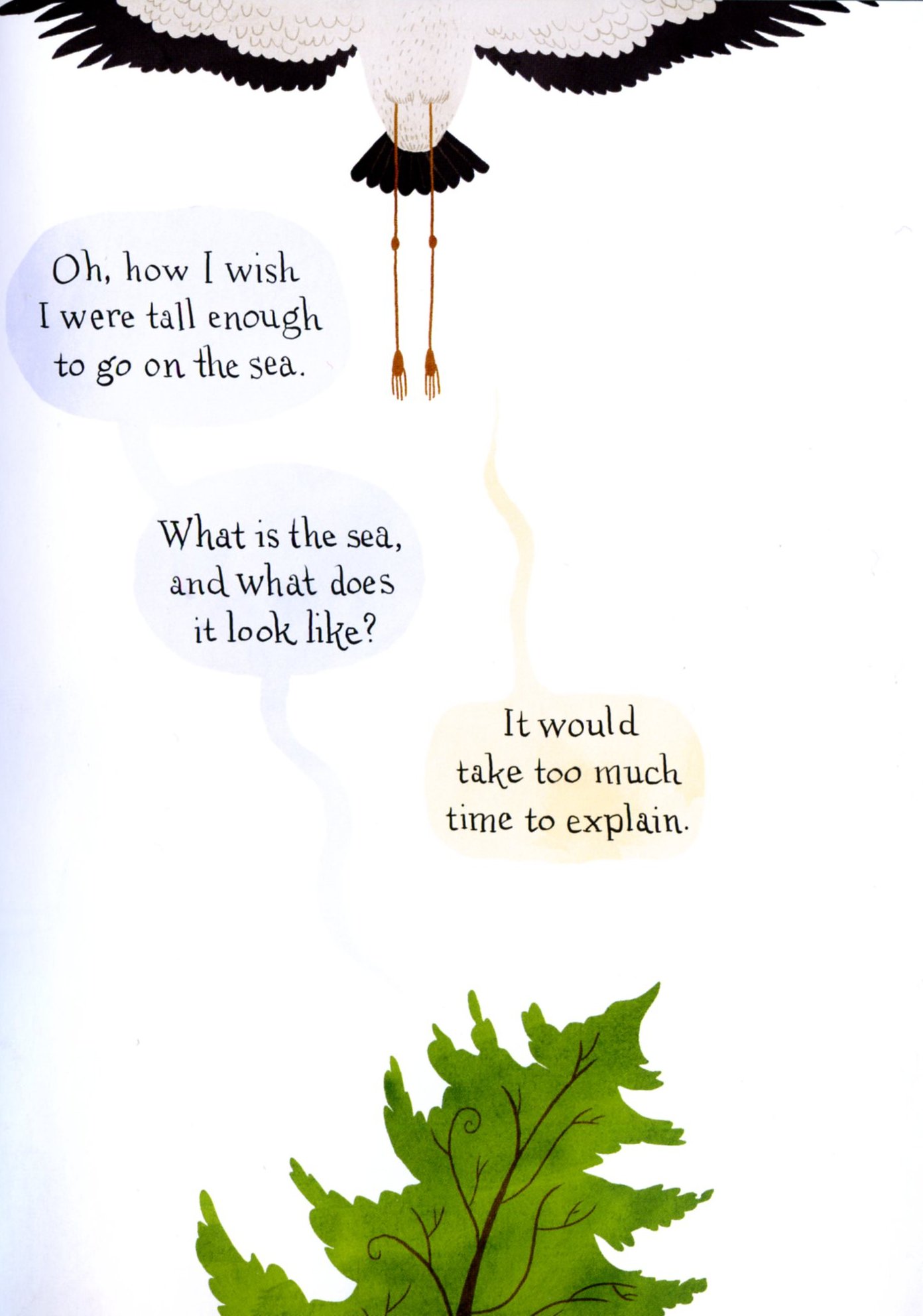This first appeared at the Comics Journal.
_________________________
Lilli Carrés version of Hans Christian Anderson’s “The Fir Tree” functions in general as an illustrated books…but there are many moments which showcase Carrés familiarity with comics. One of the most memorable of these is a page that shows our protagonist, the fir tree, talking to a stork. The layout makes dramatic use of white space and of bleeds; the tree is at the bottom, its lower two-thirds chopped off by the edge. The stork is dead center at the top, its wings spread majestically, its legs extended straight out below it, and its head cut off by the top of the page. In the space between bird and fir, three pale speech bubbles are arranged in a graceful curving tier. The fir’s words reach up on the left-hand side, as if trying to follow the stork up, up, and off the page: “Oh, how I wish I were tall enough to go on the sea. What is the sea and what does it look like?” And on the right, floating down negligently, as if casually dropped, the bird’s speech bubble replies, “It would take too much time to explain.”
I know folks swear by Chris Ware’s complicated virtuoso every-which-way page layouts, or by J.R. Williams’ dense formalist virtuoso page layouts, or by Dave Mazzuchelli’s archly formalist virtuoso page layouts. And, you know, I can appreciate all of those too. But simplicity can be a kind of virtuoso move as well, and if there’s been a more quietly beautiful page in American comics this past year, I’ve missed it. The way the bird’s dark feathers spread out against the top of the page, both emphasizing the vertical movement upwards and dynamically freezing the moment; the way the fir tree is bent slightly back to watch the departing flight, its branches twisted in delicate, eloquently pleading curves; and of course, the blank space itself, across which want and time float and reach and never meet.
You almost don’t need the rest of the book, because Anderson’s whole story is right there. Carré captures The Fir Tree’s fey clarity, the sense of a reality made unbearably vivid by its passing. The stork is more beautiful because it is indifferent and it is gone; the sea is more beautiful because it is blank and unknown; childhood innocence tugs at our heart because of the inevitability of death. Whether you’ve read this story or not, you know what’s going to happen, which is why the temptation is to just stay on this perfect page — even though the end is here, too.

